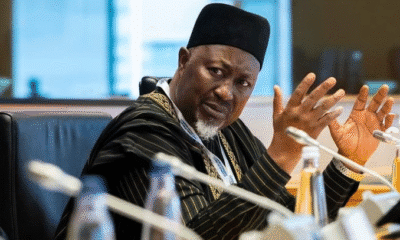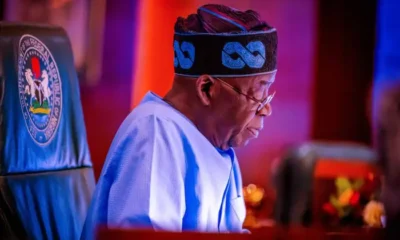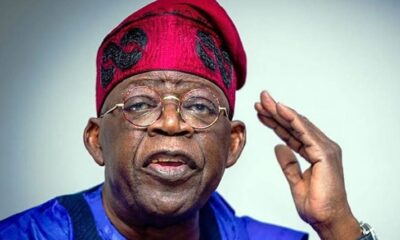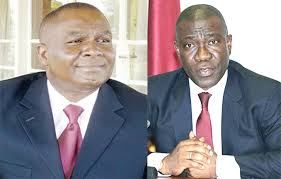Breaking News
Presiednt Tinubu To Reinstate Fubara [See Condition Given]

President Bola Tinubu has consented to reinstate Siminalayi Fubara as the governor of Rivers state, contingent upon his agreement not to pursue re-election in 2027, as reported by TheCable.
The agreement was established during a private meeting on Thursday evening at the Presidential Villa, where Tinubu welcomed Nyesom Wike, the minister of the federal capital territory (FCT); Fubara; Martin Amaewhule, the suspended speaker of the Rivers assembly; along with several lawmakers.
According to TheCable, sources from the presidency indicate that this arrangement is part of a larger initiative aimed at restoring democratic governance in Rivers, which entails considerable concessions.
Insiders reveal that a crucial stipulation is that Fubara will be reinstated to fulfill his four-year term but must relinquish any intentions of seeking a second term in 2027 — a decision that will diminish his influence, yet he has acquiesced to it.
According to a source, as part of the agreement, Wike will have the authority to appoint all local government chairpersons across the 23 LGAs of the state.
A presidency insider mentioned that this would provide significant political leverage, reinstating grassroots authority to the FCT minister.
TheCable has learned that Fubara has also committed to settling all outstanding allowances and entitlements owed to the 27 lawmakers loyal to Wike, who were suspended from the state assembly.
In exchange, these lawmakers will refrain from initiating any impeachment actions against him.
The suspended legislators, led by Amaewhule, had switched allegiance to the All Progressives Congress (APC) during the power struggle but have continued to assert their claims to their seats.
Their status as lawmakers has sparked ongoing legal and political discussions.
Sources characterized Thursday night’s meeting as a significant advancement in Tinubu’s efforts to mediate between Wike and the governor — albeit at the expense of Fubara relinquishing considerable authority in return for political survival.
“The arrangement is clear: no second term, no local government control, and peace will return,” the source said.
“The president made it clear that Rivers cannot afford a prolonged crisis. The deal is about restoring calm, but it comes at a steep cost for Fubara,” another source said.
“Wike is the real winner here. By controlling the local government chairmen, he retains significant influence over the state’s political machinery, which will be crucial for 2027.”
The political divide between Fubara and his predecessor Wike has primarily revolved around the control of the political framework in the oil-rich state.
While Wike has aimed to retain a strong hold on the political apparatus he established during his eight years as governor, Fubara has actively resisted to affirm his authority as governor.
This struggle for power has led to a political crisis in the state, undermining governance and resulting in efforts to impeach Fubara.
Key institutions, such as the state assembly, have found themselves entangled in the conflict, with factions aligning themselves with either Wike or Fubara.
Previous efforts by Tinubu to mediate peace between the two factions have proven unsuccessful.
As a result, on March 18, Tinubu announced a state of emergency in Rivers, citing the ongoing political turmoil.
He also suspended Fubara, his deputy Ngozi Odu, and all members of the Rivers assembly for a duration of six months.
The president appointed Ibok-Ette Ibas, a retired naval chief, to serve as the sole administrator of the state.
By September, Fubara will have completed his six-month suspension.

























